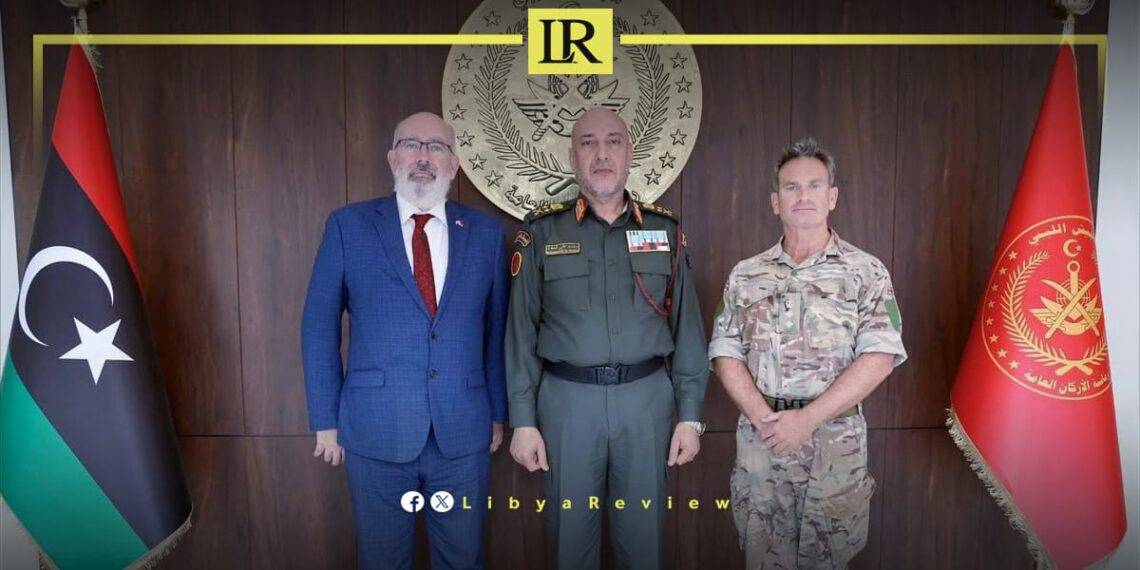The British Ambassador to Libya, Martin Longden, met with the Chief of Staff of the Libyan Army under the Government of National Unity, General Mohamed Al-Haddad, in Tripoli as part of his farewell engagements.
According to the British envoy, the meeting focused on the need for reform and unification within Libya’s military institutions to help achieve lasting peace and stability.
In a statement issued in Tripoli, the Libyan Chief of Staff’s office confirmed that the talks covered the prospects of joint military cooperation between Libya and the United Kingdom, including support for institutional development and the enhancement of training and advisory programmes.
General Al-Haddad expressed appreciation for Britain’s ongoing support, while Ambassador Longden reaffirmed the UK’s commitment to backing efforts aimed at unifying Libya’s armed forces and strengthening their professional capacity.
Also attending the meeting was Colonel Matthew Kittier, the British Defence Attaché to Libya, who discussed mechanisms for deeper coordination and capacity-building within Libya’s defence sector.
Meanwhile, in a related development, Major General Khaled Al-Sarir, Deputy Head of Libya’s Anti-Illegal Migration Authority (affiliated with the eastern-based government), told The Telegraph that Libya is ready to boost cooperation with Britain to curb irregular migration before it reaches the English Channel.
He stressed that Libya remains a transit country rather than a destination for most migrants, noting that “many are only passing through Libya on their way to Europe, particularly to the United Kingdom, which markets itself as the ideal destination.”
Al-Sarir added that Libya is working to address the migration crisis with minimal international support, urging stronger collaboration and an exchange of expertise. He criticised UN sanctions that hinder access to surveillance and rescue equipment, warning that traffickers exploit the ambitions of African migrants seeking to reach Europe.


